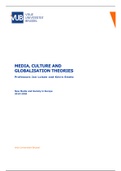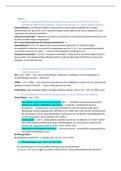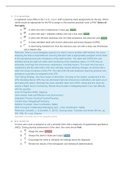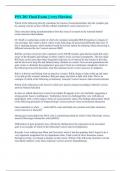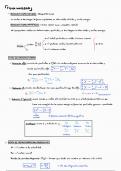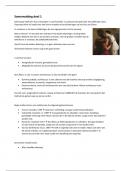Samenvatting
Summary Media, Culture and Globalization Theories
- Vak
- Instelling
Media, Culture and Globalisation Theories - Summary (slides, recordings, and own notes) This course was given by Jan Loisen and Kevin Smets. It contains all the information needed for the exam with extra information to get a deeper understanding of the matter.
[Meer zien]
